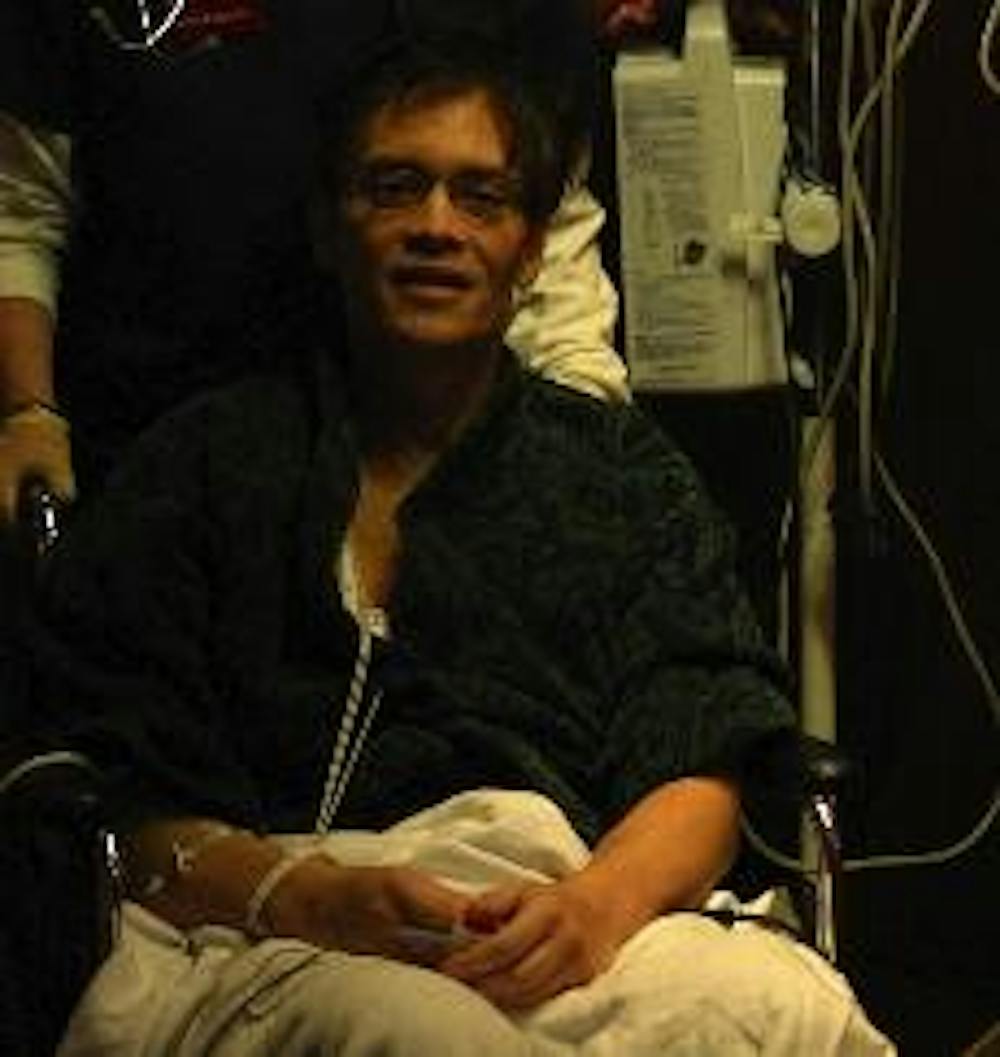Gary Onufer is flat-lining, and he's never been happier.
Last Monday, the Hospital of the University of Pennsylvania made the 46-year-old former fitness instructor the first person in the Northeastern United States to receive a Total Artificial Heart, a cutting-edge "Bridge to Transplant" technology that will keep him alive until he finally gets a heart - and a heartbeat - of his own.
"Gary's actually flat-lined right now," head surgeon Rohinton Morris said at a press conference yesterday with Onufer at his side. "He has no cardiogram, and that's a pretty wild thing to say with a patient sitting up and looking back at you."
HUP became only the eighth hospital in the country and the 15th worldwide to perform the six-hour surgery, which resulted in the complete removal of Onufer's heart and the insertion of a new, completely artificial heart.
"We actually cut the heart out," said Morris, who performed the procedure with fellow surgeon Michael Acker. "That's why this is groundbreaking."
Morris explained that, for most patients in Onufer's situation, a ventricular assist device is attached to the existing sick heart to help it pump.
But the Total Artificial Heart, or TAH-t, in Onufer's chest is attached to an external power source that pumps it.
It will remain in Onufer's body until he receives a new and healthy heart for transplant, which should occur within a few months.
In previous cases, the device has been able to sustain patients for up to five years.
Morris emphasized the importance of the TAH-t as a method of extending the lives of those waiting for healthy organs.
"About 15 percent of patients will die waiting for a heart transplant," he said. "For those patients, a ventricular assist device, or a machine that connects to the heart, is the only possibility that will keep them alive."
As challenging as the procedure may have been, it was equally difficult for Onufer to admit to the fact that he was sick and needed help.
Mary Jessup, medical director of the heart transplant program at Penn, was in charge of Onufer's care and advised him to pursue the procedure.
"It was hard for [him] to come here," she said. "It was very hard for him to get his arms around the fact that he was critically ill."
But the severity of congestive heart failure, a disease that has a prognosis worse than most cancers, forced Onufer to pursue more advanced treatment.
"At one point, I couldn't even carry groceries into the house," Onufer said. "I was just so winded."
Serious treatment, Onufer and his doctors realized, was all but inevitable.
"It was clear that transplant was going to have to be his eventual outcome," Jessup explained.
Now that the procedure was a success, he has gained perspective on the experience.
"Things happen, they happen for a reason," Onufer said. "It's respiratory heart failure - it could happen to anyone."



